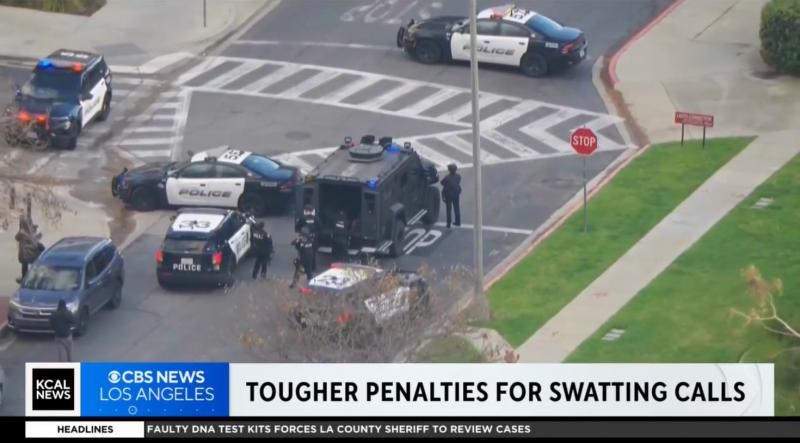
California lawmakers seek tougher penalties for "swatting" calls

Excerpt from KCAL News Los Angeles
A state senator from Southern California is seeking tougher penalties for hoax 911 reports after two "swatting" calls triggered massive law enforcement responses at a college and hospital this month.
"This bill is going to tackle that loophole where you don't need to mention a person and it's still against the law," state Senator Susan Rubio said.
"Swatting" is when someone knowingly submits a false report, typically posing as a witness to an active shooter, hostage, or home invasion situation. The caller often tries to coax law enforcement to send the largest response possible, including a SWAT team, according to the National 911 Program.
Swatting or making a false report of an emergency can be charged with a misdemeanor or felony, depending on if the report was likely to kill or seriously hurt someone, according to the California Penal Code.
Currently, California law requires perpetrators to threaten specific people in order to be prosecuted. Rubio's SB-19 would also make it a chargeable offense if a suspect makes credible threats of mass violence at schools and houses of worship.
"Our children deserve better. Our students, our communities deserve better," Rubio said. "Hopefully, this will send a strong message."
Watch the full story from KCAL News here.